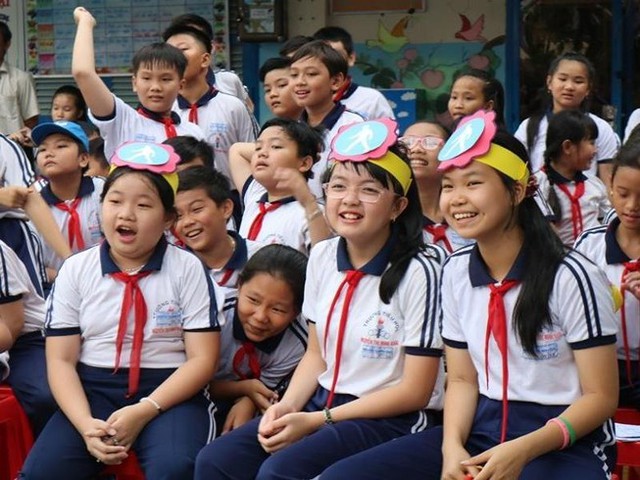UNICEF Executive Director commends Viet Nam for many gains for children
VGP - UNICEF Executive Director Catherine Russell commended Viet Nam for its many gains for children and called for urgent action to address challenges like malnutrition and inequalities as well as issues caused by COVID-19 and climate shocks.

Catherine Russell, who recently concluded a three-day visit to Viet Nam, said that in the past few decades, Viet Nam has made tremendous progress in ensuring that children across the country are healthy, safe, educated and empowered to reach their full potential.
UNICEF will continue to work with the Government and our partners to reach all children, especially the most vulnerable, with the services and support they need, she emphasized.
Many children in Viet Nam–including those from ethnic minority groups, children whose parents migrate for work, and children with disabilities–still face deprivations from poverty and lack of access to protection and basic services. This situation has been exacerbated by the impacts of the COVID-19 pandemic.
Despite recent gains in reducing child mortality, an estimated 230,000 children in Viet Nam suffer from severe acute malnutrition. Around 90 percent of these children are not being treated, leaving them at heightened risk of death or sustaining going life-long cognitive and physical damage.
In Gia Lai, Russell visited a health center and a hospital, affirming that UNICEF is advocating for coverage of treatment of severe acute malnutrition and chronic malnutrition under the national health insurance program and for increasing social protection support to prevent malnutrition from occurring in the first place.
In addition, UNICEF is a strong advocate for early childhood education, a critical building block for a child's cognitive development.
Other risks to the lives of children include the impacts of climate change–with Viet Nam among the world's countries most prone to climate-related disasters, including flooding and landslides.
Russell welcomed the Government's commitment to addressing the climate crisis and the risks it presents to children, especially the most vulnerable, adding that investments in adaptability and resilience are key to addressing future shocks and inequalities exacerbated by climate change.
In Viet Nam, UNICEF has been supporting the Government to train teachers and revise the curriculum. These efforts will help children to adapt to climate change and empower them to create solutions.
In Ha Noi, Russell held talks with senior Government and National Assembly leaders as well as other officials, to emphasize follow-up to the recent Concluding Observations of the Committee on the Rights of the Child and to raise key issues affecting children.
More specifically, UNICEF in Viet Nam is advocating for more regular cash benefits, which would help ensure children in poor and disadvantaged families are better fed, protected, and educated. That includes investing in professionally trained social workers who can prevent, protect, intervene and address violence.
